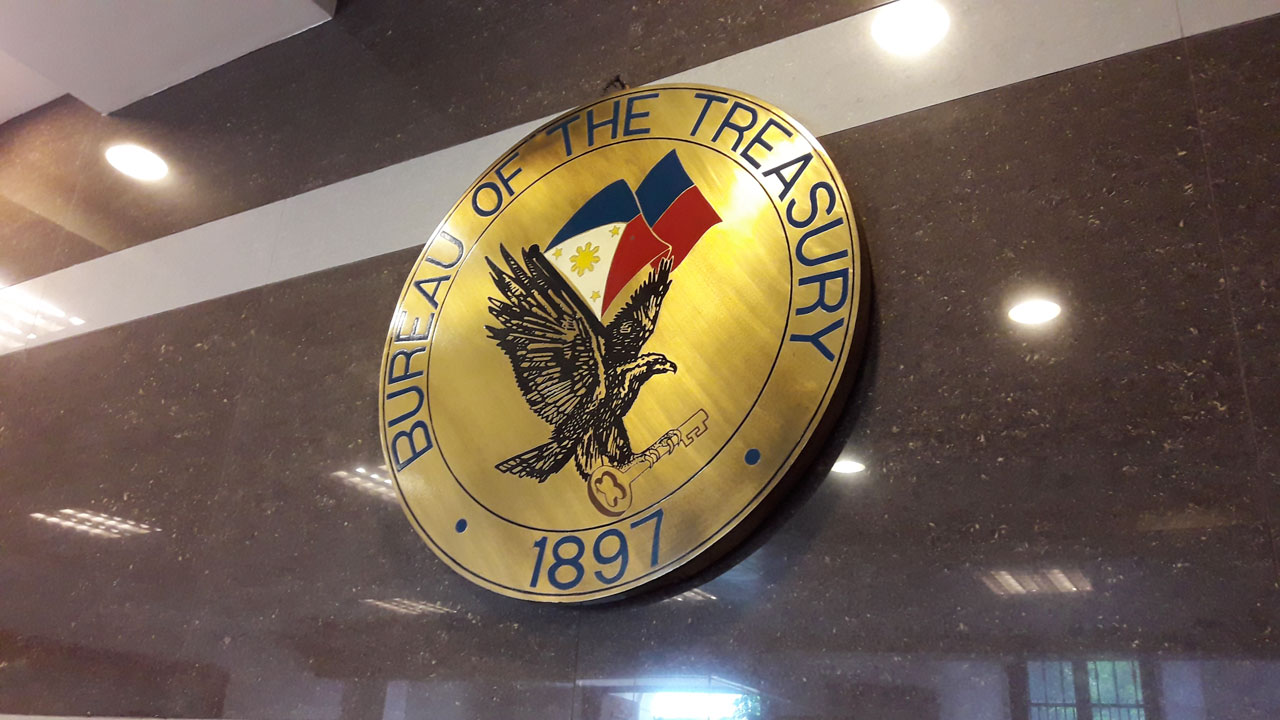T-bill rates drop across all tenors amid bets on further BSP easing

THE GOVERNMENT made a full award of the Treasury bills (T-bills) it offered on Tuesday as yields went down across all tenors on expectations of more rate cuts from the Bangko Sentral ng Pilipinas (BSP) as economic growth hit an over four-year low in the third quarter.
The Bureau of the Treasury (BTr) raised P22 billion as planned from the T-bills it auctioned off as the offer was over four times oversubscribed, with total bids reaching P98.311 billion. However, this was slightly lower than the P99.095 billion in tenders recorded at last week’s auction.
The Auction Committee made a full award of the T-bills as all tenors fetched average rates that were lower than those quoted during the previous week’s offering and at the secondary market, the BTr said in a statement.
Broken down, the Treasury borrowed P7 billion as planned via the 91-day T-bills as total tenders for the tenor reached P32.93 billion. The three-month paper was quoted at an average rate of 4.821%, down by 5.3 basis points (bps) from 4.874% in the previous auction. Yields accepted were from 4.813% to 4.843%.
The government also sold the programmed P7.5 billion in 182-day securities as tenders for the tenor were at P33.06 billion. The average rate of the six-month T-bill declined by 4.5 bps to 4.981% from 5.026% previously. Bids awarded carried yields from 4.963% to 5.022%.
Lastly, the government raised P7.5 billion as planned via the 364-day debt as the tenor drew demand amounting to P32.321 billion. The average rate of the one-year T-bill was at 5.054%, decreased by 4.5 bps from the 5.099% fetched last week. Accepted rates ranged from 5.043% to 5.063%.
At the secondary market before Monday’s auction, the 91-, 182-, and 364-day T-bills were quoted at 4.9493%, 5.0727%, and 5.1782%, respectively, based on PHP Bloomberg Valuation Service Reference Rates data provided by the Treasury.
“Results were as expected. Rates were 4-5 bps lower from last auction amid bullish sentiment on an expected 25-bp cut by the BSP in December,” a trader said in a phone interview.
“Treasury bill average auction yields were slightly lower… after worse-than-expected third-quarter GDP (gross domestic product) growth [and] amid still relatively benign inflation [that] could still support possible future BSP rate cuts and other monetary easing measures that prioritize policies that help spur greater economic growth and development that is more inclusive,” Rizal Commercial Banking Corp. Chief Economist Michael L. Ricafort said in a Viber message.
Philippine GDP growth slowed to a more than four-year low of 4% in the third quarter from 5.5% in the second quarter and the 5.2% clip in the same period in 2024, the government reported on Friday. This was well below the 5.3% median estimate in a BusinessWorld poll of 18 analysts and economists.
Officials attributed the weakness to more cautious public spending amid a corruption scandal involving state infrastructure projects, which they said also affected consumer and investor confidence.
In the first nine months, economic growth averaged 5%, lower than the government’s 5.5%-6.5% full-year target.
Meanwhile, headline inflation was at 1.7% in October, unchanged from September’s print but easing from 2.3% a year ago. In the first 10 months, the consumer price index averaged 1.7%, matching the central bank’s full-year forecast and still below its 2-4% annual target.
Analysts said weak economic prospects and manageable inflation could give the BSP a reason to extend its rate cut cycle, with a 25-bp reduction at the Monetary Board’s Dec. 11 meeting almost certain.
Last month, the BSP lowered benchmark interest rates by 25 bps for fourth straight meeting to bring the policy rate to 4.75%. It has now trimmed borrowing costs by 175 bps since its rate cut cycle began in August 2024.
BSP Governor Eli M. Remolona, Jr. has left the door open to further reductions, possibly until next year, as they want to help provide stimulus amid softer economic prospects due to the graft scandal.
Mr. Ricafort added that the ongoing stock market rout has also benefited safer assets like government securities. The Philippine Stock Exchange index closed at a new over five-year low of 5,629.07 on Tuesday and has finished below the 6,000 mark for more than two weeks amid weak market sentiment.
The BTr is looking to raise P158 billion from the domestic market this month, or P88 billion via T-bills and P70 billion through Treasury bonds.
The government borrows from local and foreign sources to finance its budget deficit, capped at P1.56 trillion or 5.5% of GDP this year. — A.M.C. Sy with Reuters



